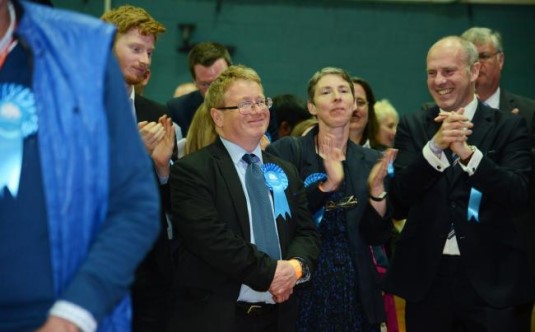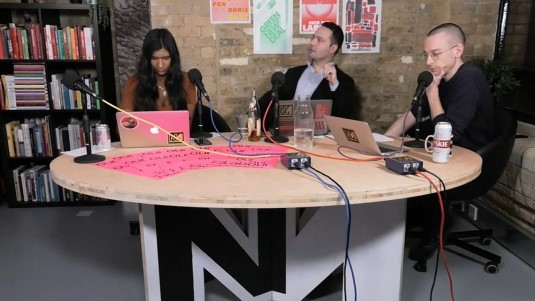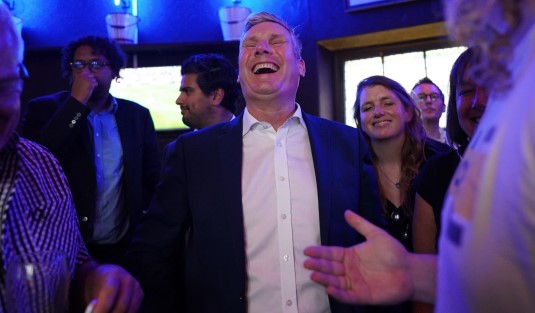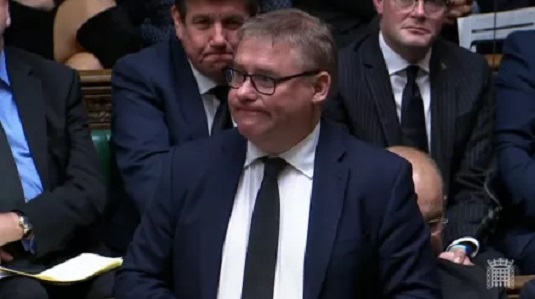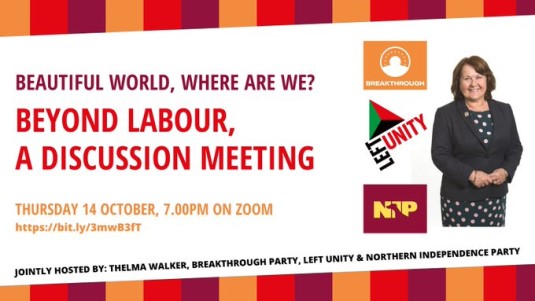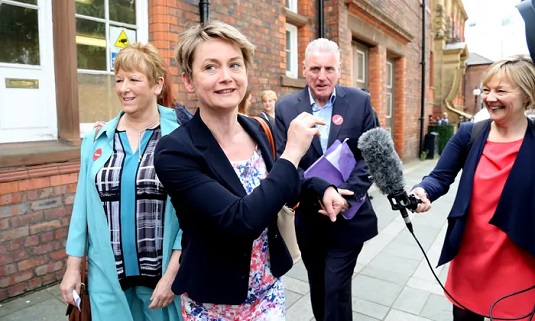
As far as I'm concerned, Starmer's leadership has proven itself to be a decadent disaster. Even so, despite pandering to the scorched earth sensibilities of the Labour right, they know a dud when they deal with one, and the end could come sooner rather than later. Given Claudia Webbe's conviction earlier this month, pending the outcome of her appeal Labour might be looking at a by-election in what was, prior to 2019, a very safe seat. If it's a good win, Starmer is safe. If it's a narrow margin, as per Batley and Spen, the knives might get put away for the local elections. But if it's a loss, whether to another George Galloway intervention or the Tories (somehow) manage it Starmer is toast.
Who is in the frame to replace him? The excitable chatter revolves around these three. Rachel Reeves because she had a good week, and probably knows how to chair a meeting and take the minutes. Lisa Nandy thanks to her ubiquity, certain adroitness in the media, and because Dominic Cummings singled her out for backhanded praise in his own 12,000 word attack on Starmer. Though Dom seems unaware that Wigan is in the North, not the Midlands. And lastly, Bridget Phillipson has been thrown in because she managed to not make a fool of herself in the week's round of interviews, including last Thursday's Question Time.
Appropriate we should be discussing these scary prospects on Halloween. Phillipson I know little about except she's "nice" and was fully on board with right wing wrecking tactics during the Corbyn interlude. Which included being one of the first Labour MPs to campaign for a second referendum, a genius stance that turned her safe seat into a marginal. Reeves, of course, is well known to readers. Having taken a more Labourist turn of late and keeping Rebecca Long-Bailey's ambitious green agenda (without due credit, of course), she has never apologised for her "the Tories are too soft on benefits" line, nor her complete lack of sense for nominating Jess Phillips's leadership bid/vanity vehicle in early 2020. To be honest, Reeves has never struck me as someone who fancies the top job. We hear time and again her ambition is to be the first female chancellor, and for once this isn't polite spin to unconvincingly mask loftier aspirations. Of the three women she is by far the most wonkish, and would be happy "doing policy" behind the closed doors of Number 11 and the Treasury. She's no frontwoman, and she knows she isn't. And then we have Lisa Nandy. A congenital inability to tell the truth should have sunk her career long ago. Instead, she's in the party's upper echelons and might have another crack at the top job. But, in my view, not any snap leader's poll to replace Dear Keir.
This round of speculation forgets there are other horses in the race for Starmer's job, and none of their insider prattle rises above the who's-going-to-marry-who musings of Coronation Street Facebook groups. In the first place, a few thoughts are worth expending on the timing of any contest. Assuming Leicester East or the next set of local elections do for Starmer, a contest is going to be early summer. If Johnson does go for an early election in 2023, a contest could happen inside a year from that point. This means no time for the customary leisurely leadership election, nor, presumably, a race that would show the party in a disunited light. The pressure would be on for a coronation, something made easier by the new threshold rules and the soft left's tendency to tail the right.
Who's in the frame? A good indicator are the MPs who've built up their own slush funds. David Lammy, Wes Streeting, and Dan Jarvis. They're there, but they might (might) give way for a well-connected saviour from the north. No, not Andy Burnham. But rather his 2015 opponent: Yvette Cooper.
For the Labour right, she's the ideal unity candidate. She ticks the awful Blue Labour boxes on immigration and, thanks to her select committee activities, established herself a hardliner on these matters. For those in thrall to the House of Commons illusio, she has the briefcase Labour creds as an experienced former minister, being better at the media than the Labour leader, and is more cutting in her lines of questioning against Johnson's lieutenants than Starmer's useless appeals to the referee. She also took a backseat during Labour's factional warfare, and as far as connecting with the public are concerned some in SW1 would find advantages in Ed Balls's stints on Strictly. What's more, she doesn't have to establish herself as a safe pair of hands with the Tory press. They know she is, and they know her politics would not fundamentally challenge the status quo. A coronation for Cooper would also have the happy consequence of making Labour even safer for capital ensuring the radicalism of recent years is just a trace left in historical accounts. Her prospectus would be a few more bones thrown to the trade unions - something they might tolerate under the present conditions of Covid and Brexit-induced labour shortages.
Could it happen? It's clear Starmer's leadership is heading straight for another Labour defeat, and those sections of the party who care about winning elections because it's their neck on the ballot box chopping block know it as well. A right wing safe pair of hands, someone they can spin as an experienced and serious figure, and whose spell out of the public eye allows for her re-presentation as someone "fresh", Cooper seems like the obvious choice for the Labour right and the PLP. A frightening prospect to be sure.
Image Credit

